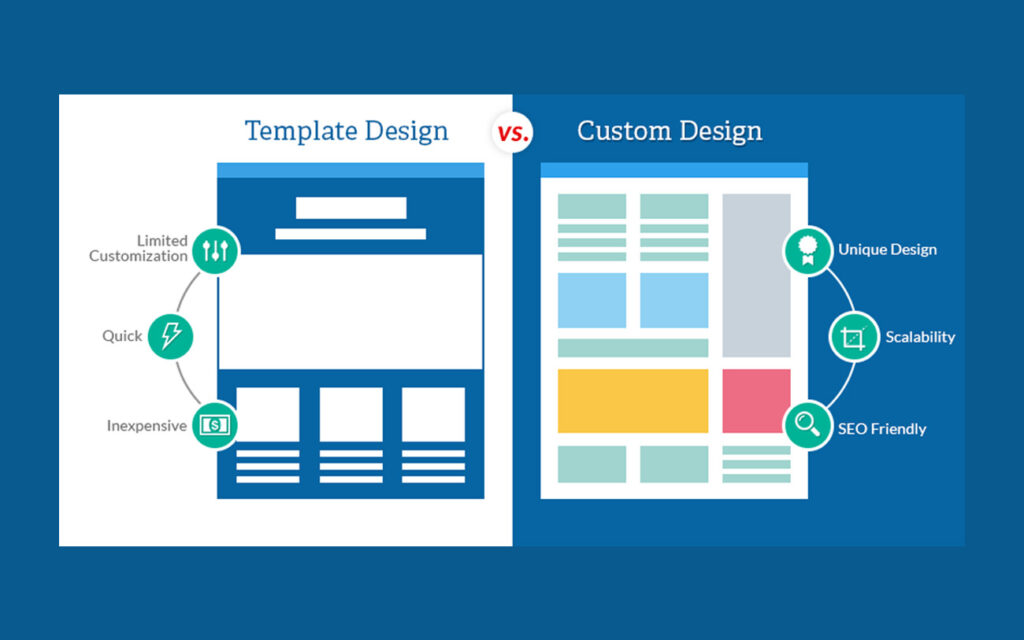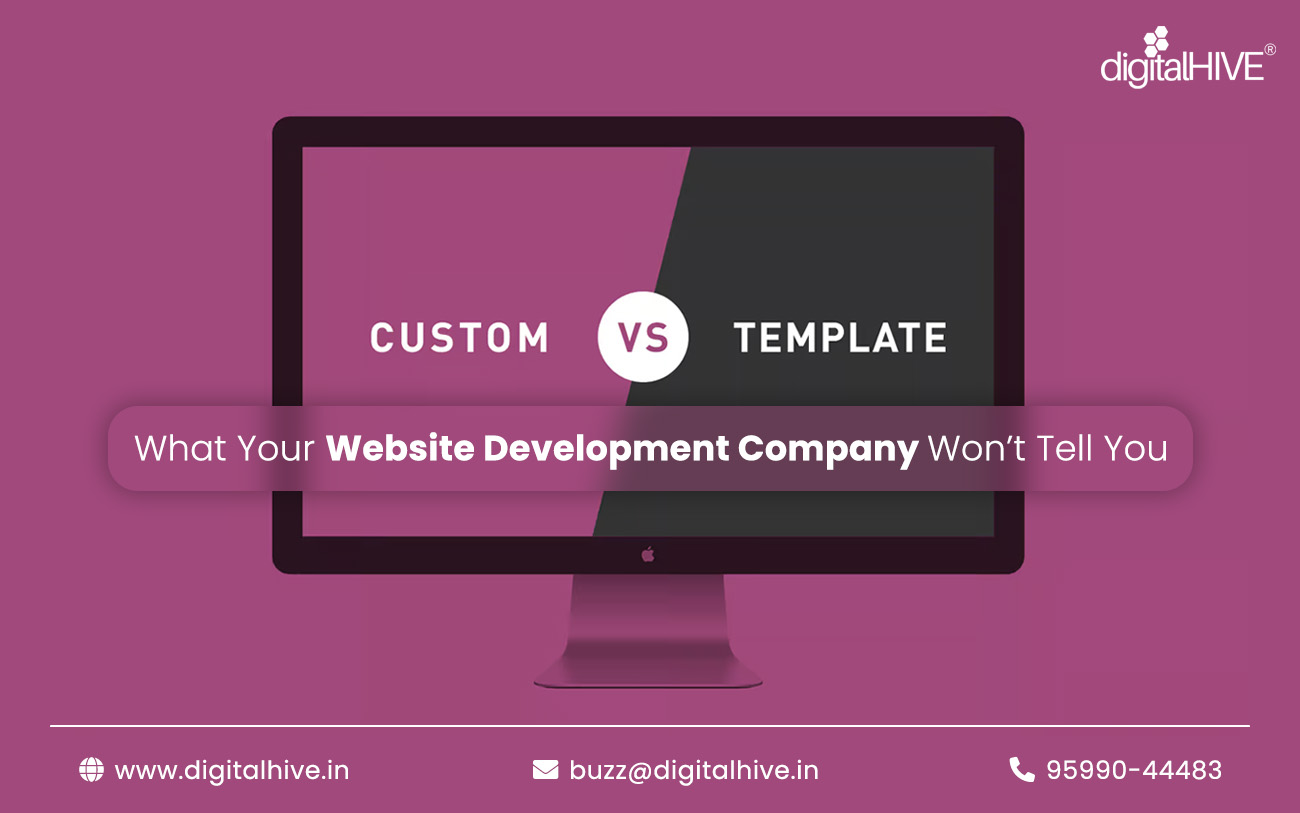If you’ve ever approached a website development company for a new website, you’ve probably heard the golden question:
“Do you want a custom-built site or a template-based design?”
At first glance, it may seem like a simple choice. But here’s what most agencies won’t openly tell you—this decision can either elevate your brand or box it into limitations you never signed up for.
Let’s break this down in real-world terms—no jargon, no fluff, just honest insights so you can make the right call for your business.
What is a Template Website?
A template website is like buying a ready-to-wear outfit. It’s pre-designed and can be deployed faster. Website design company love templates because they cut down on development time and resources.
You pick a theme, add your content, and go live. Sounds good, right? But here’s the catch…
The Limitations of Template Websites
- Limited customization: Most templates are built with fixed layouts. You can change colours, fonts, and images—but altering structure or functionality often leads to clunky code or broken designs.
- SEO restrictions: Templates might not be fully optimized for speed, responsiveness, or technical SEO needs. That can hurt your Google rankings in the long run.
- Generic feel: Many other businesses may be using the same template, making it hard for your brand to stand out.
- Scalability issues: Want to add custom features later, like booking integrations or dynamic dashboards? That’s where most templates fall flat.
What is a Custom Website?
Think of a custom website as a tailored suit, crafted to fit your brand’s voice, functionality needs, and long-term goals.
When a website development company builds a site from scratch, everything—from the user flow to backend performance—is designed with your business in mind.
Why Custom Websites Are a Long-Term Win
- Brand identity on point: Every detail reflects your brand’s personality, from custom UI elements to strategic layouts that guide visitors toward conversion.
- Full control over SEO: Developers can fine-tune your code for faster load times, schema markup, accessibility, and other advanced SEO advantages.
- Custom functionalities: Whether you need a multilingual setup, lead-scoring CRM, or a real-time inventory system—custom builds deliver.
- Scalable for growth: As your business evolves, your website can scale without hitting structural limits.
But Here’s What They Don’t Tell You…
Many website design companies push templates because they’re easier to sell, faster to deliver, and more profitable in the short term.
Custom websites demand more skill, time, and understanding of your business—something not every agency is equipped or willing to offer.
You might also hear, “Templates are just as good as custom builds today.”
That’s partly true—but only if your goal is to have a digital brochure, not a business-generating platform.

How to Decide: Custom vs. Template?
Ask yourself:
- Is your website critical to your sales funnel?
- Do you plan to scale or add new features in the future?
- Is brand differentiation important in your industry?
- Do you want to optimize aggressively for SEO?
If you answered “yes” to most of these, a custom website is your best bet—even if it takes a little longer or costs a bit more upfront.
Final thoughts,
At the end of the day, your website is more than just pixels on a screen—it’s your first impression, your digital storefront, and often, your most important marketing asset.
While templates may seem like the faster, cheaper route, they come with hidden trade-offs that can limit your brand’s growth and visibility. A custom website, crafted by a professional website development company, offers the flexibility, scalability, and performance your business truly deserves.
So before you settle for the easy option, ask yourself: Do you want to fit in—or stand out?
